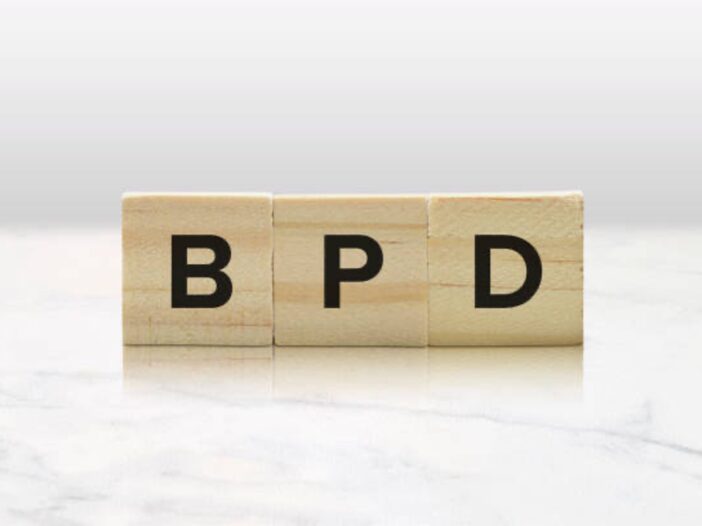
Are you seeking disability for Borderline Personality Disorder?
If you suffer from borderline personality disorder (BPD), and this disorder interferes with your ability to work, you may qualify for disability benefits from the Social Security Administration (SSA).
Borderline Personality Disorder, What Is It?
Borderline personality disorder (BPD) is a form of mental illness characterized by significant emotional instability, as well as highly impulsive behaviors. Individuals suffering from BPD have difficulty controlling their emotions. They may undergo significant personality changes over short periods of time.
Symptoms of BPD
Common symptoms of an individual suffering from borderline personality disorder include:
· Significant mood swings
· A tendency to look at things in extremes, everything being either bad or good
· Rapid changes in values and interests
· A fear of being abandoned, potentially leading to frantic efforts to prevent real or perceived abandonment
· Having frequent unstable, intense relationships
· Frequent displays of intense and inappropriate anger
· Antagonistic behavior leading to disputes and fights
· Impulsiveness, often leading to risky behaviors
· Short but intense episodes of anxiety or depression, usually lasting only a few days
Overlapping Conditions
Approximately 85 percent of those suffering from BPD also live with other mental health disorders including:
· Anxiety disorders
· Depression
· Eating disorders
· Bipolar disorder
· Attention-Deficit/Hyperactivity Disorder (ADHD)
Qualifying for Borderline Personality Disorder Disability
Is borderline personality disorder a medical diagnosis that qualifies for SSI or SSDI disability benefits?
The short answer is “it depends.” Like many other illnesses and disorders, qualifying for disability with bpd is not easy. To qualify for either SSI or SSDI benefits, your condition must be so severe that it prevents you from working at substantial levels. This typically means your diagnostic criteria meets the SSA listing criteria for BPD and you have documented medical evidence supporting your diagnosis.
Individuals with strong disability claims must demonstrate they have medical documentation for one or more of the criteria for a medical listing found in section 12.08 of the SSA’s Blue Book. These include:
· Distrust and suspiciousness of others
· Detachment from social relationships
· Disregard for and violation of the rights of others
· Instability of interpersonal relationships
· Excessive emotionality and attention seeking
· Feelings of inadequacy
· Excessive need to be taken care of
· Preoccupation with perfection and orderliness
· Recurrent, impulsive, aggressive behavioral outbursts
Additionally, an extreme limitation of one, or a marked limitation of two of these areas of mental functioning:
· Understanding, remembering, or applying information
· Interacting with others
· Concentrating, persisting or maintaning pace
· Adapting or managing oneself
Medical Evidence for BPD
A strong claim for disability benefits must also contain substantial medical evidence supporting the diagnosis. This may include medical records that contain:
- Mental status examinations
- Psychological testing
- Personality measures testing and/or
- Neuropsychology testing
- A statement in your own words about how your BPD makes it difficult to work
- Statements from others having close contact with you, including other health care workers, friends, and family members
It would also be helpful to provide the SSA with a history of your treatment over time.
Inability to Work and a Residual Functional Capacity Evaluation
If you are not able to qualify for benefits by meeting the requirements for a listing under section 12.08 or the SSA’s Blue Book, you still might qualify for benefits by showing that your BPD prevents you from performing any kind of job. In this situation, the SSA will conduct a residual functional capacity (RFC) evaluation.
The evaluation considers your age, work history and experience to see what job-related tasks, if any, you can still perform. If your RFC establishes that you cannot do your previous work or other jobs because of BPD, you may be granted disability benefits.
Seeking Disability for Borderline Personality Disorder
This content is provided by Collins Price, PLLC. We are North Carolina disability attorneys who assist claimants throughout the state in filing applications and appealing denied SSDI and SSI disability claims.
We’ve been practicing disability law exclusively for over a decade and focus on providing client-focused and compassionate care. Over the years, we have helped thousands of North Carolinians navigate the process and produce successful claims.
If you’re considering filing for disability benefits, or you’ve been recently denied, contact us today for an initial free consultation. We will evaluate your situation, provide a straight-forward assessment, and if we think your claim warrants it, we’ll guide you through the application and/or appeals process. There is no fee for our services unless we win your claim.
If you’re looking for legal support and wondering “where can I find Social Security lawyers near me in Charlotte, NC?” don’t hesitate to contact our firm.



